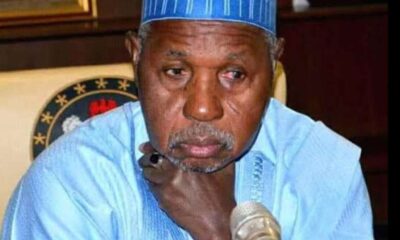
News
EFCC turns down bribery attempts by Sujimoto Luxury Construction Ltd CEO, Insists on due process
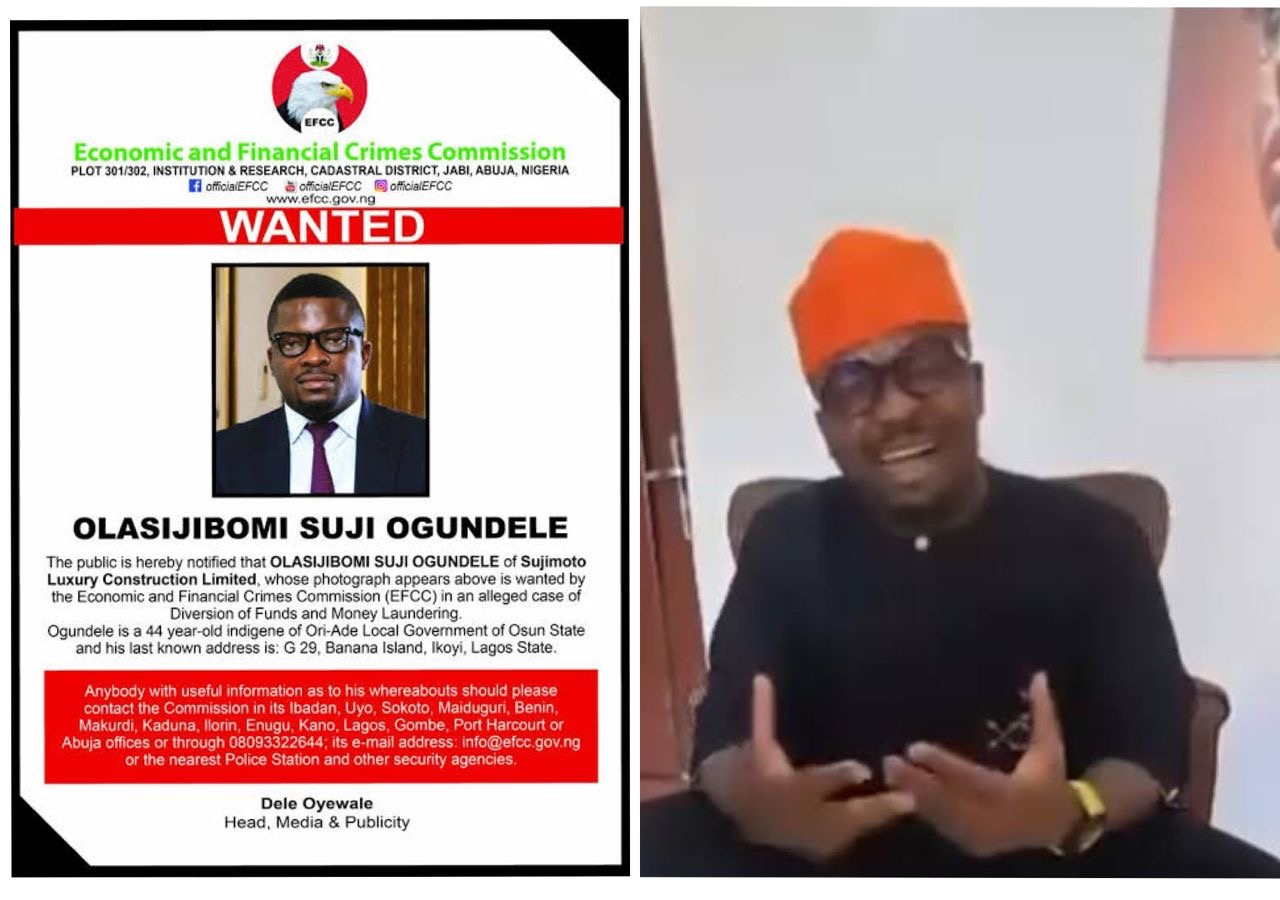
The Economic and Financial Crimes Commission (EFCC) has rebuffed alleged bribery overtures and propaganda campaigns mounted by the Chief Executive Officer of Sujimoto Luxury Construction Limited, Mr. Sijibomi Ogundele, and his team, insisting that the ongoing investigation into the N5.7 billion Smart Green Schools scandal in Enugu State will not be derailed.
Reliable sources close to the anti-graft commission disclosed that attempts have been made “from different quarters” to arm-twist the EFCC into soft-pedaling on the high-profile probe, including desperate efforts by the embattled Sujimoto boss to “settle” his way out of the probe rocking his company.
“We are aware of moves by powerful interests and even emissaries of the suspect to induce the EFCC into abandoning due process. But the Commission has strongly rejected these overtures. The investigation is water-tight, and no amount of lobbying, blackmail, or propaganda will stop us,” a source familiar with the matter confided.
Beyond monetary inducements, EFCC insiders revealed that Ogundele and his lawyers have also resorted to calculated blackmail to frustrate the probe. According to them, the Sujimoto camp has launched a smear campaign in the media, attempting to portray the agency as being used by political foes, while simultaneously flooding social media with counter-narratives designed to whip up public sympathy.
But officials insist the records speak for themselves. “He collected N5.7 billion mobilization from Enugu State to deliver 22 Smart Green Schools in six months. What is on ground are abandoned sites at foundation and block levels. Other contractors have delivered theirs with the same amount of money paid to them; only Sujimoto vanished with taxpayers’ money,” another source explained.
However, the EFCC, determined to close all loopholes, has already secured a Magistrate Court order to remand Ogundele, while his personal and company accounts remain frozen alongside the seizure of his international passport.

There are strong indications that the Commission may also seek a forfeiture order against the funds in the frozen accounts if Ogundele fails to account for the billions in his custody.
“The remand order is to allow us conclude investigations. He has to either explain in detail how he spent N5.7 billion or return it. His case looks straightforward because the contract documents, payment records, and site inspections speak for themselves,” an EFCC operative said.
Meanwhile, the Enugu State Government, which awarded the contract, has also accused Ogundele of outright fraud. In a damning statement signed by the Commissioner for Information, Dr. Malachy Agbo, the government said:
“Rather than play to the rules of the contract, Mr. Ogundele resorted to shoddy jobs, quack engineers, and later vanished into thin air with the money. All efforts to get him to a roundtable failed.”
The statement was accompanied with graphic evidence from joint inspections by state officials and EFCC operatives, showing abandoned sites across the state, some barely beyond foundation level.
The statement further disclosed that the scandal became more glaring when compared with other contractors engaged by the state under the same Smart Green Schools initiative. Chief Ikeje Asogwa of Intasog delivered 12 schools, Surv. Ugo Chime of Testimony Enterprises, Chinedu Nwobodo (Petit) of Albond Limited, and Chief Charles Mba of CDV Properties, each handled 10 schools successfully. Sujimoto, despite receiving the highest mobilization, failed woefully.
Vowing that it would not allow its image to be dragged, the EFCC had insisted that the case is a litmus test for its resolve to withstand and dislodge corruption, propaganda and elite influence.
“The Commission is standing firm against a cocktail of bribery, intimidation, and blackmail,” an EFCC source said.
“With Ogundele already declared wanted and now in EFCC custody based on a remand order, Nigerians are keenly watching how the case unfolds. If successfully prosecuted, it could set a new precedent against elite contractors who hide under luxury brands and social media noise to defraud the public treasury.
“This is not about politics, this is about public trust. N5.7 billion of taxpayers’ money must be accounted for. The EFCC will not bow to pressure,” another top EFCC official, who does not want his name on print, added.
News
Ex-Speaker, Aminu Masari, lists four conditions to bridge gap between campaign promises and realities
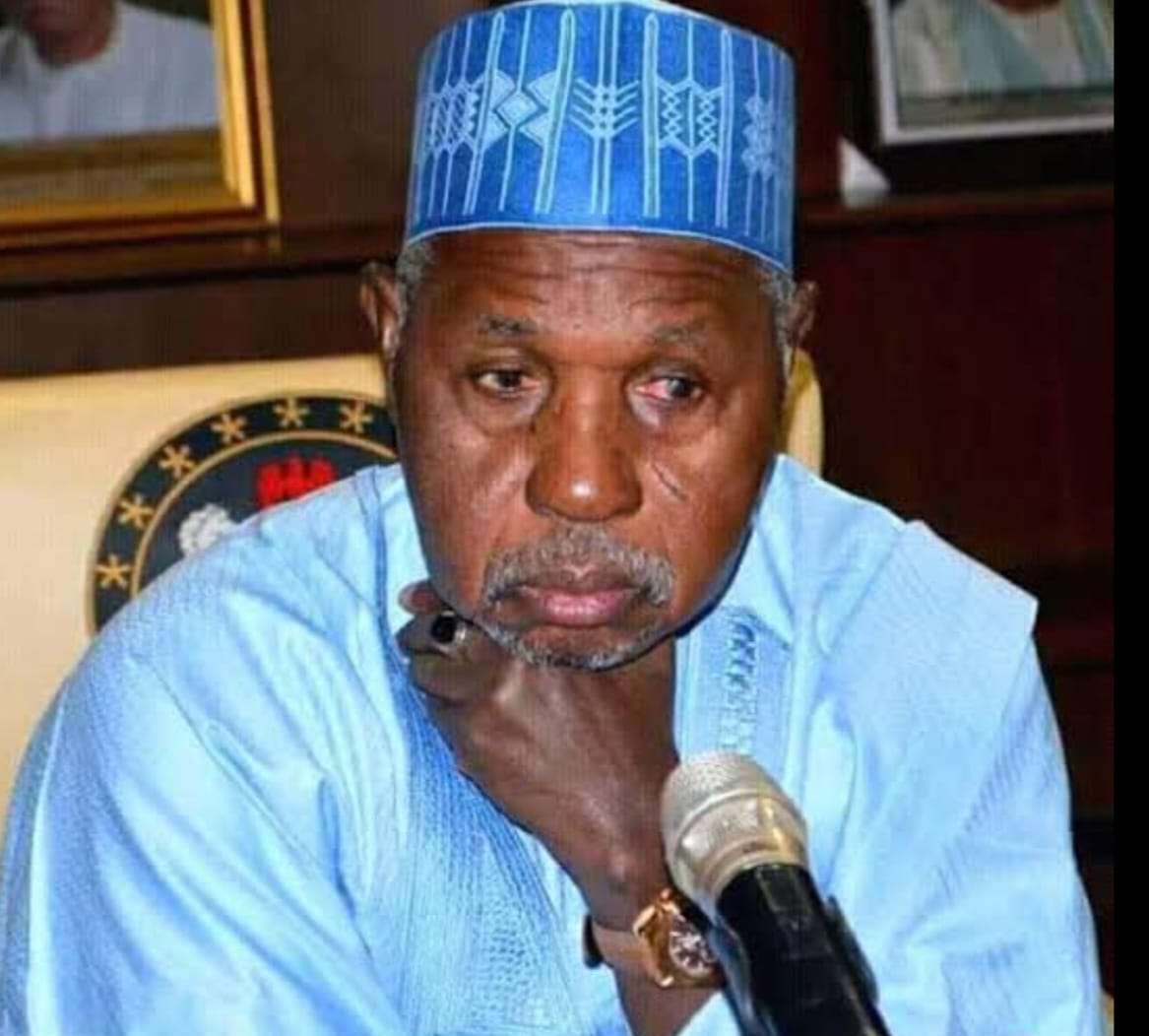
The former Speaker of the House of Representatives and former Governor of Katsina State, Rt. Hon. Aminu Bello Masari has lamented the yawning gap between campaign promises by politicians and realities of governance on the ground.
Delivering the Keynote Address at the 9th Annual Conference of the Guild of Corporate Online Publishers (GOCOP) in Lagos, Masari, who spoke on the theme: Reconciling Campaign Promises with Governance Realities: Challenges and Prospects, listed four conditions to bridge such gaps in the interest of democracy.
To Masari, political actors must campaign with responsibility, insisting that such campaign promises should be realistic, costed and achievable within the available resources.
“Unrealistic pledges made merely to capture the mood of the electorate should be challenged and exposed. Only then can we begin to elevate our political culture and make sure that the process justifies the end. Second, governance must be anchored on strong institutions. With capable institutions, policies can be implemented more consistently and transparently.”
According to him, the third leg must imbibe honest communication with citizens by political leaders. He tasked leaders to explain the trade-offs — why certain promises may take longer, why resources must be reallocated and how progress will be measured.
“Fourth, citizens themselves, including civil society and the media, must understand realities and properly communicate those realities in addition to holding leaders accountable. They should track promises, and demand transparency instead of creating sensational headlines to attract followers, especially now that the number of followers translates into monetary gain.”

Looking at the challenges before political leaders in fulfilling campaign promises, the former Katsina State governor named limited resources, competing demands and unexpected crises.
“Many manifestos are aspirational documents, not grounded in the reality of available resources or institutional capacity. Fiscal constraints are also a big factor. Campaign promises hinge on the resources available to any country. In many African nations — and more specifically in our case — budgets are still heavily dependent on a single commodity: oil. Yet, as we all know, the price of oil is beyond our control. It is volatile, shaped by global market forces, geopolitical tensions, and other complex and unpredictable factors.”
He said beyond resource volatility, there are also unforeseen emergencies that force governments to reorder their priorities with COVID-19 as a vivid example. He said such emergencies consume time, energy and resources and compel governments to suspend plans and promises across all sectors, resulting in campaign promises suffering in the long run.
“Here in Nigeria, insecurity remains a persistent challenge. It undermines production, disrupts livelihoods and reduces national revenues. It compels government to divert enormous resources toward security operations. Another major issue is weak institutions. Even when funds are available, corruption, bureaucracy and inefficiency can derail delivery.”
He concluded that reconciling campaign promises with governance realities is not just about avoiding embarrassment for politicians but about protecting the integrity of democracy itself.
The keynote speaker warned that if citizens repeatedly see promises made and broken, they lose faith in the system.
“But if they see even modest progress explained honestly and delivered consistently, they will continue to believe in the promise of democracy. Let our promises be realistic, our expectations be modest, our governance transparent and our accountability strong. In doing so, we can transform hope into progress, and democracy into a vehicle of real change.”
He commended the EXCO and members of GOCOP on its 9th anniversary and consistently creating platforms for the people to have honest conversations about the future of our democracy.
“This is where journalism at its best, and more specifically GOCOP in this digital age, becomes indispensable. You and your profession are the bridges between the leaders and the people. You shape narratives, hold leaders accountable and track progress.”
News
Enugu Gov, Exco, Lawmakers defect to APC Tuesday
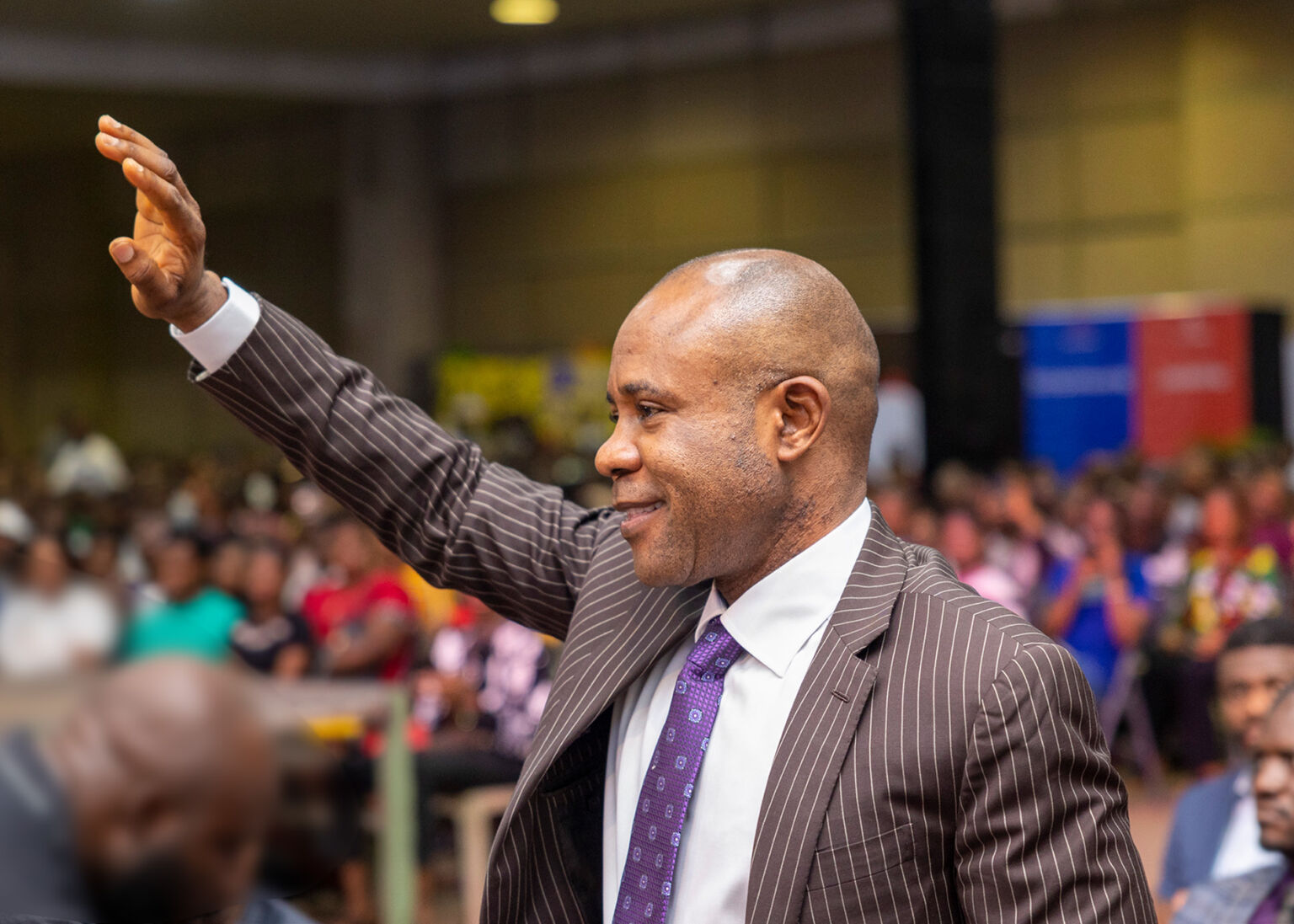
The governor of Enugu State, Peter Mbah, has dumped the Peoples Democratic Party (PDP) for the All Progressives Congress (APC).
This was confirmed by the Enugu APC Caretaker Chairman, Dr Ben Nwoye, while speaking to journalists on Friday.
According to him, Mbah will officially defect to the ruling party on Tuesday, October 14, 2025, in Enugu, alongside federal and state lawmakers, the state executive council members, and ward and local government leaders across Enugu State.
The APC National Working Committee (NWC) on Thursday dissolved the Enugu State Working Committee (SWC) over unresolved differences, appointing a seven-member caretaker committee to oversee the affairs of the party.
The wave of defections from opposition parties to the All Progressives Congress (APC) has continued to grow.
A few months ago, Akwa Ibom State Governor Umo Eno and his Delta State counterpart, Sheriff Oborevwori, both left the Peoples Democratic Party (PDP) to join the APC.

During the defection ceremonies held in Uyo and Asaba, the former APC National Chairman, Dr. Abdullahi Ganduje, revealed that more opposition governors and top party leaders were preparing to cross over to the ruling party.
On October 8, Kelvin Chukwu, the Senator representing Enugu East, also announced his defection from the Labour Party (LP) to the APC.
His move raised the number of APC senators to 73, giving the party a two-thirds majority in the 109-member Senate — a threshold that allows it to easily pass major decisions and legislation.
At the moment, the Senate’s composition stands as follows: APC, 73 senators; PDP, 28; LP, four; All Progressives Grand Alliance (APGA), two; and one each from the Social Democratic Party (SDP) and the New Nigeria Peoples Party (NNPP).
News
Ben Nwoye returns as Enugu APC Chairman after dissolution of Agballah-led exco
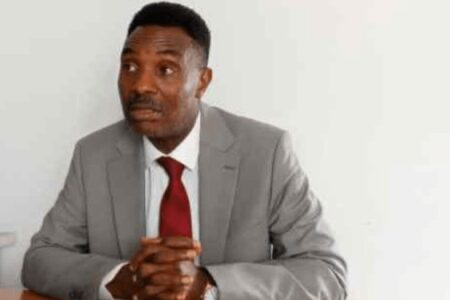
• Ex-Speaker Odoh appointed Secretary
The All Progressives Congress, APC, has dissolved the Enugu State working Committee of the party.
This is preparatory to the detection of Governor Peter Mbah to the ruling party.
The dissolution of the former party executive led by Ugochukwu Agballah came barely 2 days after the Minister of Innovation, Science and Technology, Uche Nnaji resigned over alleged certificate forgery.
Nnaji is an ally of Agballah, the now ex-chairman of APC in Enugu State.
Agballah and Nnaji had seriously opposed Mbah’s defection to the party.
However, Nwoye and other foundation members of the APC insisted that the governor is gladly welcome to the party.

Rising from its 179th meeting in Abuja on Thursday, the APC National Working Committee, NWC, dissolved the Agballah-led SWC with immediate effect.
In its place, former chairman of the party in the state, Barr Ben Nwoye is now the new helmsman of the party in the state.
A former Speaker of the Enugu State House of Assembly, Barr Eugene Odo is the Secretary of the 7-man caretaker committee.
Resolution taken during the meeting was signed by Hon. Durosinmi Meseko, Deputy National Publicity Secretary of the APC.
It reads in parts:
The National Working Committee (NWC) of the All Progressives Congress (APC) held its 179th meeting at the Party’s National Secretariat, Abuja, on Thursday, 9th October, 2025, presided over by the National Chairman, Prof. Nentawe Goshwe Yilwatda.
“At the conclusion of the meeting, the following resolutions were reached:
1. Dissolution of Enugu State Executive Committee and Appointment of Caretaker Committee
The NWC approved the dissolution of the APC Enugu State Executive Committee with immediate effect, following a comprehensive review of the state of the Party in Enugu State.
Consequently, a seven (7) member Caretaker Committee has been constituted to oversee the affairs of the Party in the State.
The Committee, which will be inaugurated on Friday, 10th October, 2025, at 10:00 a.m. at the Party’s National Secretariat in Abuja, is composed as follows:
Dr. Ben Nwoye – Chairman
H.E. Mrs. Fidelia Njeze – Member
Comrade Peter Chime – Member
Dr. (Mrs.) Oby Ajih Member
Dr. Chiedozie Nwafor – Member
Engr. Emma Ekeh – Member
Rt. Hon. Eugene Odoh – Secretary
Details of the APC resolution:


-

 News1 day ago
News1 day agoBREAKING: Tinubu grants 175 persons presidential pardon
-

 News2 days ago
News2 days agoAtiku backs Sowore-led protest, demands immediate release of Nnamdi Kanu
-

 News3 days ago
News3 days agoWhy I resigned, Nnaji explains, denies wrongdoing
-

 News1 day ago
News1 day agoCertificate Scandal: CASER asks Enugu Attorney General to prosecute Ex-minister Nnaji
-

 News3 days ago
News3 days agoCooking Gas: Scarcity, price hike artificial, middlemen exploiting customers — NALPGAM
-

 News2 days ago
News2 days agoRMRDC targets 30% Value Addition Policy on Export of Local Raw Materials
-

 News2 days ago
News2 days agoPresidency rejects World Bank report claiming 139 million Nigerians live in poverty
-

 News1 day ago
News1 day agoTinubu nominates Kogi’s Prof. Amupitan as INEC chairman




